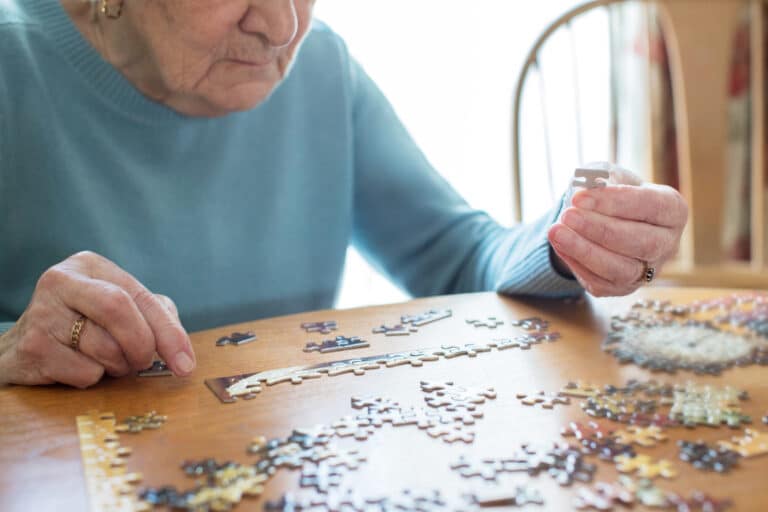Written by Xingyi Wu, Jul 2023:
As we age, it’s natural to experience changes in our social relationships.
For many older adults, social connections become increasingly important as they face new challenges and transitions in their lives. However, loneliness is becoming an increasing problem among the elderly population.

According to a survey conducted by the Australian Red Cross, over 1.2 million older Australians experience loneliness, and this number is expected to rise in the coming years.
Likewise, in the United States, over 40% of people aged 65 and older report feeling lonely.
These statistics are topped by reports that in the United Kingdom, Age UK reports that more than two million people over the age of 75 live alone, and over one million say they always or often feel lonely.
What are the consequences of elderly loneliness?
The impact of loneliness on older adults is significant and can lead to a range of negative health outcomes, including:
- Depression and anxiety: Lonely older adults are more likely to experience depression and anxiety, which can further exacerbate feelings of social isolation.
- Cognitive decline: Studies have shown that loneliness is associated with cognitive decline and an increased risk of developing dementia.
- Cardiovascular disease: Chronic loneliness has been linked to increased inflammation, which can lead to cardiovascular disease.
- Increased risk of falls: Older adults who are lonely may be less active and have weaker muscles, making them more prone to falls.
- Reduced immune function: Loneliness has been linked to reduced immune function, making older adults more vulnerable to infections and illnesses.
- Increased mortality: A number of studies have found that loneliness is associated with an increased risk of mortality in older adults.
This article will explore the effects of loneliness on the elderly population, and will share our top tips for helping the elderly people in your life not only reduce loneliness, but maintain healthier and more connected relationships for years to come.
3 tips to reduce loneliness amongst the elderly
Reducing loneliness amongst elderly populations is important for many reasons, including to encourage:
- Improved mental health
- Better physical health
- Increased social connections
- Enhanced quality of life
- Reduced healthcare costs
Let’s look at some of the ways this can best be achieved.
Tip 1: Start a new hobby
Hobbies are generally understood to be activities that are undertaken regularly in one’s life for the purpose of pleasure and leisure.
Examples of Great Hobbies for the Elderly
- Playing a musical instrument
- Holding board games nights
- Gardening
- Cooking
- Arts and craft activities
- Singing
- Volunteering for a community organization
- Learning a language

As a near-instant way to meet new people and form unique and lasting relationships, hobbies can help to combat loneliness in a range of exciting ways, including:
- Meeting new people: Joining a group or club that shares a common interest can help older adults to meet new people and expand their social networks.
- Staying engaged: Hobbies can help older adults to stay mentally and physically engaged, which can have positive effects on their overall health and well-being.
- Find increased meaning and purpose in life: Hobbies can give older adults a sense of purpose and meaning, which can improve their mood and outlook on life.
- Fostering a sense of accomplishment: Hobbies provide opportunities for older adults to set and achieve goals, which can create a sense of accomplishment and boost self-esteem.
What’s more, the advent of COVID-19 has pushed even more hobby groups and clubs online, meaning your loved one now has the option of staying connected even when managing periods of social isolation. Additionally, many of our recommended hobbies can be shared or experienced through video calls with family or close friends, further enhancing the sense of connection and enjoyment.

Approaches to Prompt Socialization Without Travel
- Bringing the activity to the elderly person: Increasing the number of arranged visits to the elderly person’s home or care facility
- Making use of community transport options that help your loved one undertake light shopping or leisure activities with other members of the community
- Utilizing assistive communications technology (like the Konnekt Videophone or Konnekt Captioning Videophone) to assist your loved one with connecting online or via video call
Tip 3: Make use of assistive communications technology
The advent of COVID-19 has delivered some surprising silver linings, including the increased use of technology in the elderly population.
A survey conducted by the Australian Communications and Media Authority found that 70% of Australians aged 65 and over increased their use of technology during the COVID-19 pandemic. The survey found that many older adults were using technology to stay connected with family and friends, access health information and services, and shop online. The survey also found that video calling was the most popular technology used by older adults during the pandemic, with 51% of those surveyed using video calls to stay in touch with family and friends.
The Konnekt Videophone and Konnekt Captioning Videophones are purpose-created examples of extraordinary contemporary technology that help elderly people stay connected in ways that are simple, meaningful and dignified.
Konnekt Products Help Reduce Loneliness
- Group calling enables calls with multiple family members or friends
- Screen sharing (to the Videophone) helps you create engaging interactions
- Large, on-screen captions help people who are deaf and hard-of-hearing
- The extra-large screen and one-touch buttons make it easy to use
- It’s personalized and set up by the Konnekt team, with nothing more for you to do

These are just some of the amazing features contributing to our customers’ incredible experiences with us. You can read more client testimonials here.
To find out more about combatting the effects of social isolation using assistive technologies, check out this resource and consider clicking through to learn more about Konnekt’s state-of-the-art communications technology.
References:
“Loneliness in Older Person: a Predictor of Functional Decline and Death”, University of California

Tip 2: Increase socialization
Encouraging healthy periods of socialization is one of the most obvious, and perhaps most important factors to consider when combating the effects of loneliness in elderly people.
Key to understanding the importance of socialization is also understanding the risks involved in social isolation – that is, the circumstance of elderly people being disconnected from their loved ones.
According to US Census data, social isolation and loneliness are associated with a 50% increased risk of developing dementia among older adults in the US. The same studies found that older adults who regularly engage in social activities are 70% less likely to experience cognitive decline than those who are socially isolated.
However, for many reasons, increased socialization may not be possible for the elderly person in your life. That may be due to factors such as location, living circumstances, health conditions, and more.